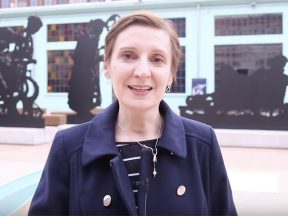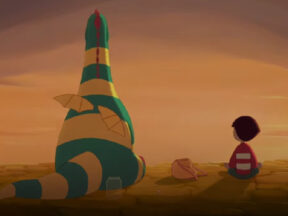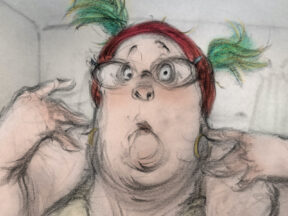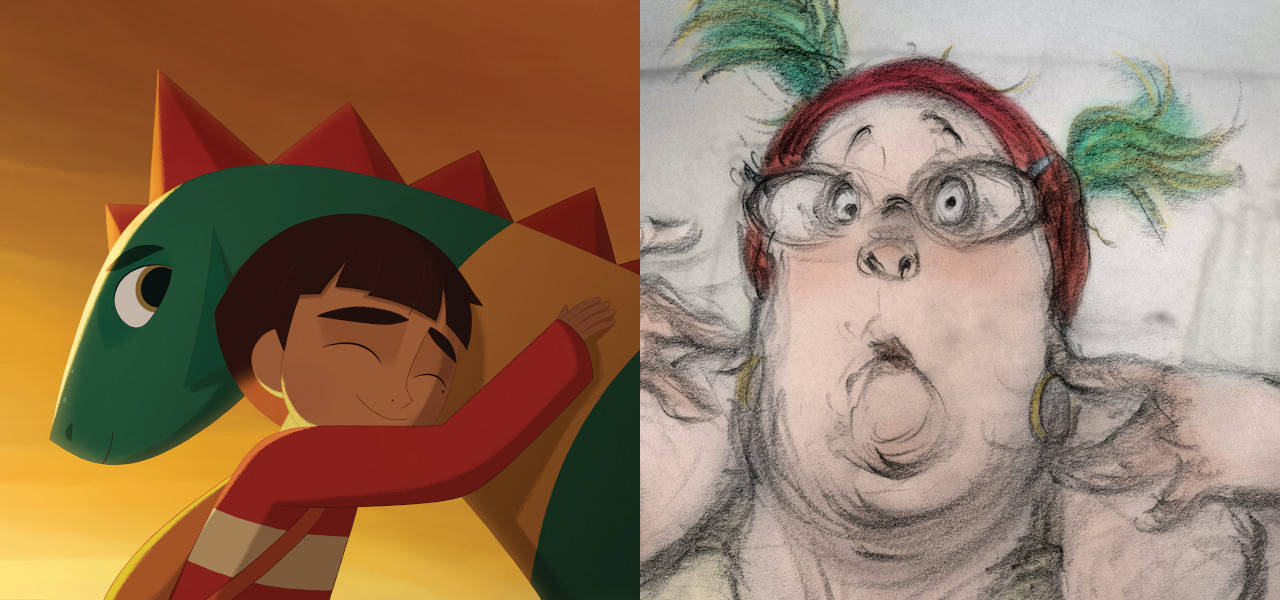
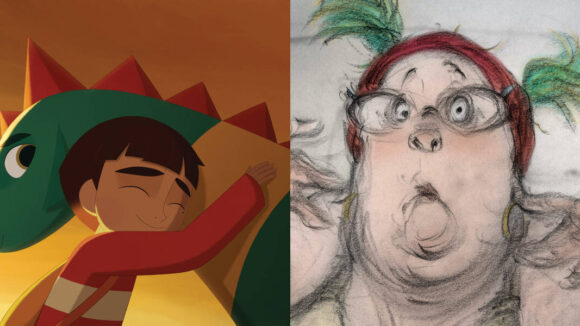
Nora Twomey And Joanna Quinn Discuss Feature Filmmaking, Inspiration, And Work-Life Balance
Earlier this year, the Cardiff Animation Festival in Wales hosted a conversation between two animation legends, The Breadwinner and My Father’s Dragon director Nora Twomey and two-time Oscar nominee Joanna Quinn.
Now, the festival has made the entire conversation free to listen to on Youtube.
Much of the talk is dedicated to Twomey’s most recent film, My Father’s Dragon, but the two touched on plenty of other topics in their 87-minute panel, including inspiration, the differences between short and feature filmmaking, and balancing being a parent and a filmmaker.
My Father’s Dragon
My Father’s Dragon began just as The Breadwinner was finishing up production. While pitching the new film to distributors in Hollywood, Twomey started to feel like streaming would be the best option for this specific title, which eventually ended up at Netflix.
She says that she was particularly aware that other Cartoon Saloon films often spent much of their time in arthouse cinemas playing to well-educated adult audiences that might not line up at the box office to see a movie about kids being scared. She wanted to put this film “into the living rooms or even the phones of people who aren’t feeling that they’re being judged for their choices in the cinema lobby.”
Feature Directing
Quinn is an animation icon whose short films have toured the world; both Famous Fred (1996) and Affairs of the Art (2021) were nominated for best animated short Oscars. But she admits in the panel, “The thought of making a feature film fills me with horror. I just wouldn’t know where to start.”
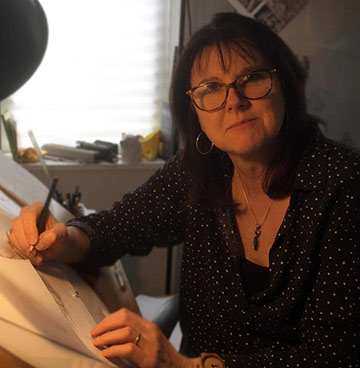
According to Twomey, that starting point is different for every project, but in the end there isn’t a huge difference in the amount of work required to direct a feature or a short film.
“Your films, they’re not features but they’re a huge amount of work,” said Twomey. “I know you touch every page and I think it’s probably about the same amount of work as directing a feature this size that you couldn’t possibly touch every page and you can’t talk to every person.”
Twomey says the key to making a feature is delegation. “You surround yourself with people that know how to make it because all directors have different skill sets.”
Inspiration
During the panel, Twomey talked about making mistakes during the filmmaking process, and why she’s not all that bothered by them. Specifically, she cited the work of Caroline Leaf as inspirational because of the way it embraces its faults.
“When she’s making her films, if she makes what could be considered as a mistake she just weaves it into the whole process and it’s part of her the film that she makes,” she pointed out. “It’s expressing something extremely human, and what do we look for in our stories? We look for humanity.”
Advice
At one point, whether intentional or not, Twomey offered up a good bit of advice for anyone working in the industry with long-term plans of directing. Early in her career, Twomey worked at Brown Bag Studios in Dublin. She says at the time, she always asked other people at the studio, “How do you do your job? What does your job entail? Because I wanted to be able to do mine better.”
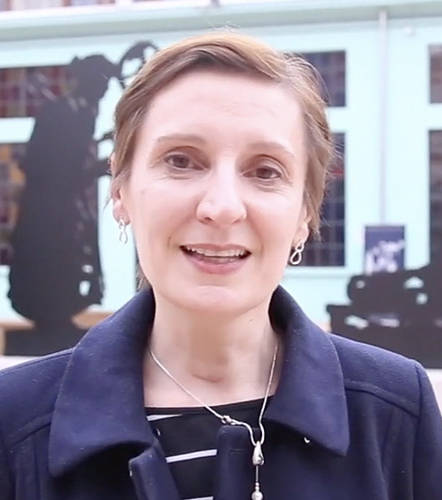
She explained that by understanding other parts of the process, her work improved, and she could better contribute to the projects on which she was working. Today, lessons Twomey learned from fellow artists 30 years ago still come in handy when she’s leading productions.
Parenting
Twomey is a working mother with teenage children. As such, her ascension to feature filmmaking coincided with her kids’ formative years.
Talking about how she balances being a mom and filmmaker, she explained, “I think being a parent at all you’re gonna have guilt. You’re gonna say I don’t spend enough time with my children, or I don’t spend enough time with my crew, I don’t spend enough time in the pub…” That got a good laugh.
She went on, “I always thought that I would have children when I had enough money to provide something stable for them. When I was about six months pregnant with my first, not only did I have to plow all of my savings back into the company, but I had to take out a loan… But we got through it and my children had enough to eat and a roof over their head. You can never have a perfect set of circumstances.”
Pictured at top: My Father’s Dragon, Affairs of the Art

